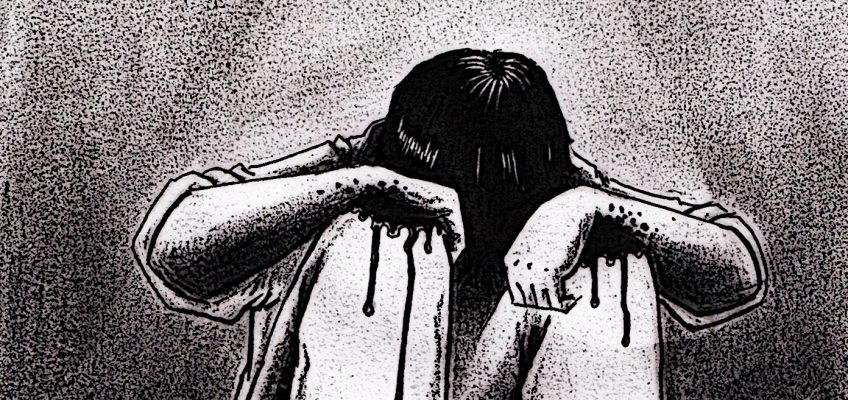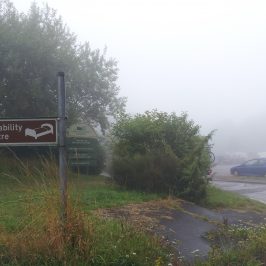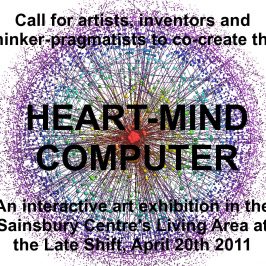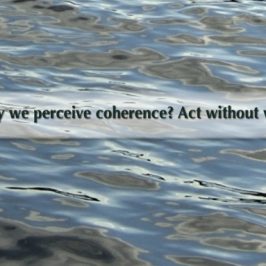Perhaps what we should fear most in this age of Collapse is the strain on our hearts that the weight of living in the Machine puts on us. Times are tough and toughness seems to call for protection, the building of walls to shield what we care about, a cool and distanced attitude toward the chaos around us. No one can bear watching the large-scale destruction of beauty that is being imposed on the world, and no one should. But shutting off from the world cannot be the right response either. Because then what is most precious between us will certainly wither and die.
I should say that I write this because I have found myself pushed to the edge and felt the cold hands of the Machine around my neck. I have been here before. Luckily, because I know what to do and I’m backing off, turning around and heading for a quiet place where I can sit in peace. In this way, these words are like the top stone placed carefully on a cairn so that the trail which led here – frustration and anger – will be remembered allowing me (and other mountaineers) to steer clear of this treacherous path. It leads nowhere. But frustration and anger are valid and real, and if we care about our health we will want to deal with these emotions head on.
What do you do when the game is rigged and the referee is bought off by the other team? Refuse to play? Appeal to the audience? Assassinate the referee?
If I was a philosopher, and had a great deal more wit, I would come up with an elegant figure of speech showing how the answer lies outside the logic of the question: the obvious response is abandoning this way of speaking altogether. The very formulation of the question will trap the inquirer unless she maintains a healthy dose of common sense and lucidity. The question was a trick to force her to apply those faculties. It is a similar trap I have found myself in so many times: what can I do faced with the overwhelming sense of injustice and the heart ache that arises simply from watching what goes on in the world? (Tony Dias, borrowing a term from Seth Godin, has described this as the enormity of our time.) These days, simply existing comes with the sense of being an animal encaged in a machine.
Abandoning the metaphor. What does it mean in practical and real life terms, how do we deal with injustice and heart ache? There are so many appropriate and legitimate responses that I can only speak for myself and my own situation. Realising that things are going down the drain and ain’t coming back out of there. A ‘peak-oil’ moment. Mourning for the world. Recovering. Coming back again. It is the loss of beauty and the wholesale destruction of rooted nature-culture which will never come back which continues to trouble me. It is ongoing and it is ugly. And difficult to endure.
Abandoning the metaphor must mean stopping using the same logic that produces a game that can be rigged and the referee bought off. To stop being part of it and refuse to engage in the playing field. This requires peace of mind and effort. That must be both the starting and end point of any thought or action. When we loose our calm and the enormity finds its way back in, we must first of all retreat to a safe place. This becomes infinitely easier when we have good friends to support us. In fact, finding a community with the necessary level of support is probably the only way we can sustain the effort. Facing the enormity on my own is what brought me to writing these words in the first place.
Abandoning the metaphor also has very practical, real life consequences. It means withdrawing from many playing fields all at once, moving your money away from the big banks, sourcing your food outside supermarkets, and making a host of other sincere decisions about how you can best live a thriving life (it is obviously not the same as becoming an ‘ethical consumer’ which is still playing the same field). This may seem overwhelming but surely not as overwhelming as the enormity. The liberation that comes from making such decisions will no doubt erase any sense of being paralysed or overwhelmed. Because it means the pain of watching beauty hanging in the gallows no longer is ours to endure.
Abandoning the metaphor opens up a space for creating new and better ones. In that space we can begin to move away from the logic that ties us into lives that are less dependent on the Machine. Organising our lives based on living and flourishing imagery is surely preferable to the current language of competition, efficiency, growth and progress? Sometimes it feels like this is the only appropriate response faced with the enormity. If the future is rapidly disintegrating because our modern institutions can no longer deal with the destructive forces it gave birth to, we should start thinking about what we want to take with us into the future. This really came out in a conversation I had with Dougald Hine where he put it this way: “ways of thinking are likely to be useful or not useful to the extent that they have an awareness built in that there are other games that humans are capable of playing”. So, we need better metaphors for the kind of games we’d really like to play.
On the edge, right there where there’s nothing but a deep drop into darkness, metaphors might not seem so important. Best to take a step back, then another, sit down and give expression to whatever arises. But don’t let your heart love the world less because it is grim to look at. In a response to the horrific image of whales and dolphins swimming in an ocean of oil, Tony Dias asks us to remember:
They ignore the violence done to them. They refuse to accept it as a limitation. They would rather die than be contained in this way, to have their spirits burdened by these evils. In their deaths they affirm life. Not in any abstraction. They don’t die for any ideal. They live. Their world is entire. We destroy the world. They suffer. But they live in the meantime!
The meantime. It’s all there is! For all our striving, for all our talk of “futures,” there is only now.
Perhaps we can learn from the living world how to disengage from the rigged playing field where the referee is against us without becoming bitter and hard. Because otherwise the Machine will really have won the game.







jeppe
Alex Doherty’s interview with Ro Randall goes into this topic in depth. I recommend checking it out, here’s an excerpt from the interview which I felt struck a chord with some of the things I tried to express in this post:
Despair is an appropriate response, but it’s important to see despair as part of the process of coming to terms with loss. It is no longer possible to believe that we will avert the catastrophic consequences of climate change and that is a terrible knowledge to absorb. It will produce in anyone who allows themselves to face it, the blackest, bleakest moments. However, to remain consumed by despair, to be despairing about everything, to insist on the primacy of this personal emotional response, is in the end to be in a narcissistic place. There has to be a process of coming through the rage at the idiocy of the politicians, the sadness at the destruction of the natural world, and the grief at what future generations will face, to the knowledge that there are still ethical decisions to be taken and responsible actions that matter. We cannot avert the consequences of climate change but we can still work for a world that faces those consequences equitably, justly and responsibly. And we should not punish ourselves for our failure to do more by refusing to take joy in a sunset, or delight in a child’s first steps or laugh and crack jokes with friends.